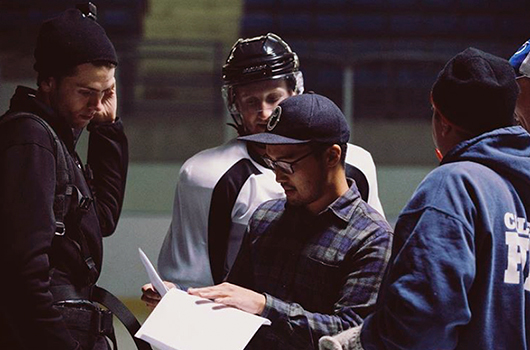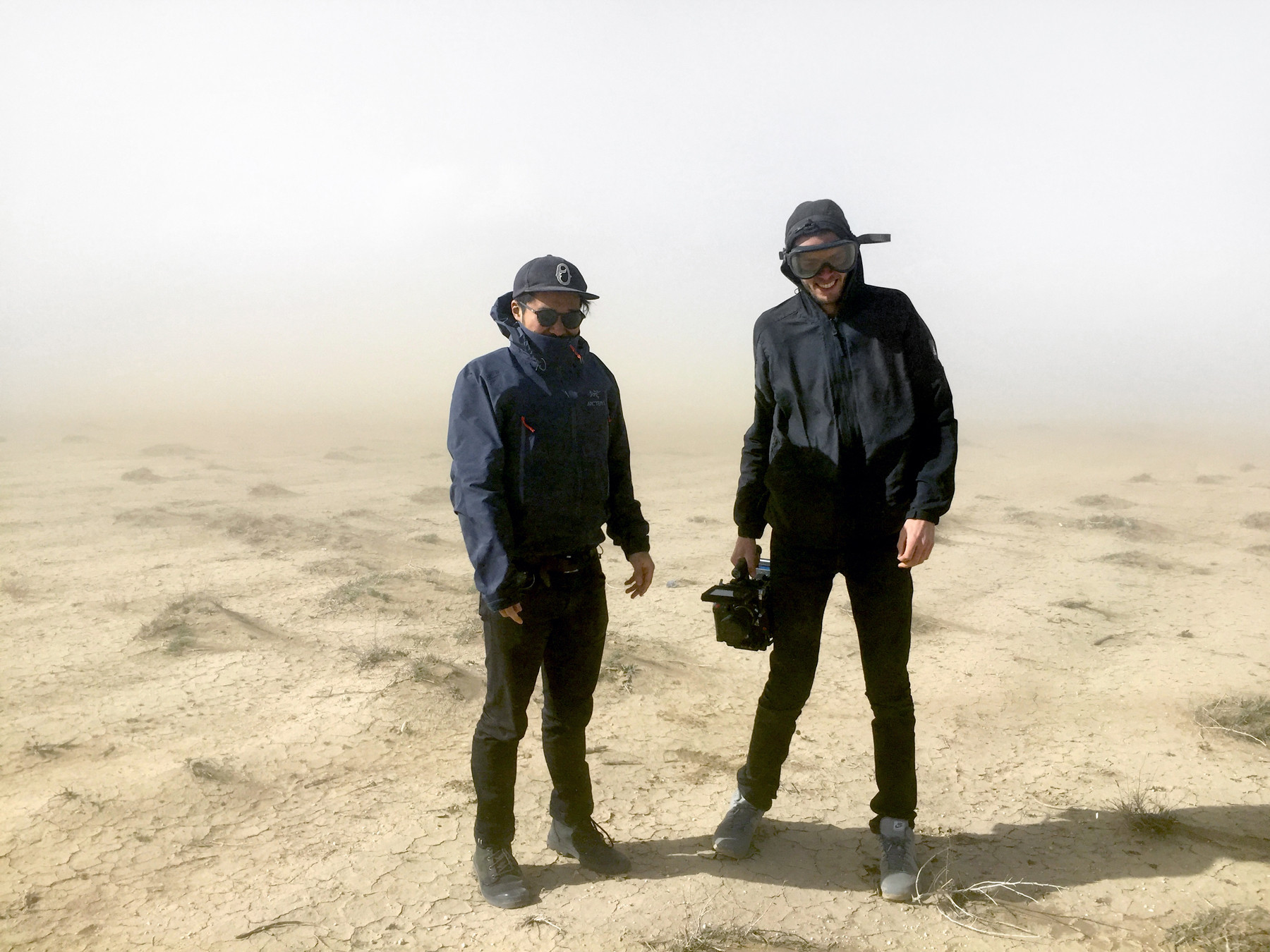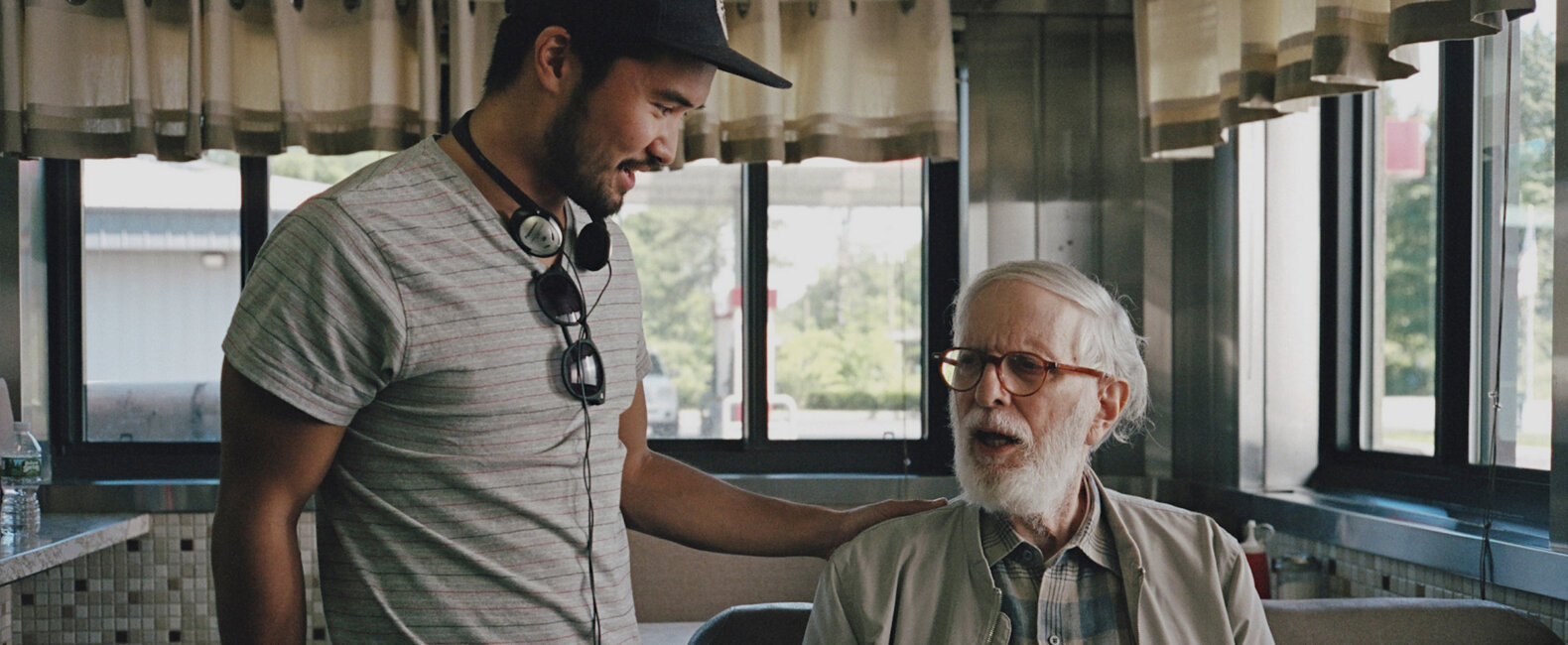Why wait around for the perfect script to come your way, when you could spend time writing a script of your own? Probably because it’s a lot easier to have someone else do it. But with that strategy comes some serious risk. Mainly that the script never comes at all. The smarter, if much more painful, option is to take control of your creative destiny and write it yourself. Which is exactly what commercial director Lloyd Lee Choi is doing right now: hacking away on a feature-length script in hopes of breaking through the creative ceiling he’s reached while creating 30- to 60-second spots. We called him recently to see what he’s learned about writing. Here’s what he said.

Showing Up
I find that writing is the most challenging aspect of the filmmaking process, because you’re constantly wrestling with self-doubt. It’s just you in a room with a blank screen, feeling like you’re not good enough. It’s a scary process, and I’ve definitely had those moments where I’ve written 20 to 30 pages and said to myself, This is absolute shit. But I’ve learned over the last couple of years, that it’s just showing up and doing the work, setting a schedule and being disciplined. For someone who has the attention span of a 12-year-old, I’ve had to sit down and be rigid with my process. Even if I’m halfway in and all I want to do is quit. I know if I just push through and jump that little hurdle, I will eventually get to the end. The key is finishing that first draft. And understanding that it is what it is and you can rewrite. That’s what makes the whole struggle kind of beautiful. Because when you finally do write something you feel good about, there’s no better feeling.
Establishing a Routine
I’ve been slowly figuring this out for myself over the last year. I took three months off from work at the very end of last year, and I tried to write on a schedule. I realized that’s the only way I can do it. I originally had this dream that I could do commercial work and music videos, and write while on the road between jobs, or as I’m doing other things. But my brain is very compartmentalized, and it has to do one thing at a time in order to do it well. So, I figured out I need to work in bursts or clusters. I’ll do commercial work intensely and just do that. Then I’ll set aside time — a month or two — to just write. I need to set a schedule, Monday to Friday. I tend to write best between 10:00 a.m. and 3:00 or 4:00 p.m. It’s a very taxing process, and I think I’d go insane if I did any more than that.
Finding Flow
Right now, I write as much as I can whenever an idea comes into my head. I try to establish a flow. When that happens, it’s such a great feeling. It’s like you’re not even thinking; you’re just letting things go onto the page. But then when you’re stuck, it’s the worst feeling. That’s when I focus on some writing exercises. Really, it’s a way to do something instead of nothing. You know, something I can do instead of just sitting there, chugging coffee and eating croissants. I don’t want to be that sad-looking café hobo in the corner.

Getting Out of a Rut
There’s one exercise I really love. Basically, I’ll take one of the characters in the script and write a totally different story about them. It doesn’t have to be in script format; it can be prose or even just a flow of thoughts. And then I’ll see where that leads. Sometimes it can be a scene that you can include in your feature. Sometimes it becomes a whole new script. It just takes you off that dead-end path you’ve wandered onto.
There are few better ways to control your creative fate than committing to writing your own material. It can be a daunting process, but — trust us — it’ll be worth it. Figure out a routine that works for you and work through your creative ruts. But most importantly, show up. The rest will work itself out.

















































































